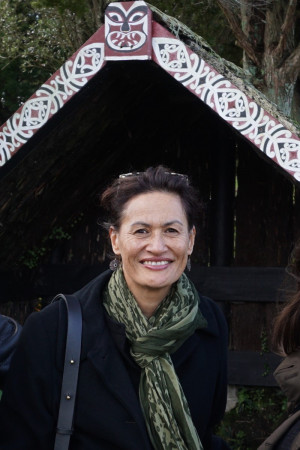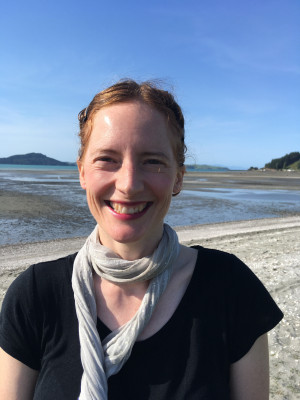The Voices of our Harbours: Kāwhia, Manukau and Whangārei

Dr Marama Muru-Lanning and Dr Keri Mills from the University of Auckland are collaborating with flaxroots Māori to investigate kaitiakitanga over Aotearoa’s harbours. This Marsden Fund project will reveal, for the first time, the complex relationships that Māori have with local harbours and emphasise the work of Māori activists in the use of kaitiakitanga in law and policy
Published on 5 November 2019
While the word ‘kaitiaki’ has entered our legal system, it often stands in for ‘stakeholder’, which fails to recognise how deeply embedded the term is in Māori culture. Moreover, we seldom hear the voices of those with daily responsibilities for kaitiakitanga. Aotearoa’s harbours are both historically significant and environmentally threatened. This research focuses on the stories Māori tell about harbours, how kaitiaki understand these places, and how best to use or care for them.

Dr Marama Muru-Lanning. Photo: supplied
In their Te Pūtea Rangahau a Marsden project, the team will use case studies of three harbours: Kāwhia, Manukau, and Whangārei to explore diverse local expressions of kaitiakitanga and investigate how mātauranga Māori and kaitiakitanga interact with local and central government ways of knowing and treating the environment. They will examine kaitiakitanga as a network of concepts and relationships, as well as a political movement, and consider how the codification of kaitiakitanga into law and policy has hindered or assisted Māori in their exercise of kaitiakitanga over harbours. The project will draw on documentary sources and a range of community voices, including kaumātua, wāhine, and rangatahi, to learn how people have enacted kaitiakitanga in their daily lives, continued their traditions and responded to climate change and environmental appropriation.

Dr Keri Mills at Kawakawa Bay. Photo: supplied
Harbours are facing increasing environmental threats, many are subject to claims under the 2011 Marine and Coastal Area Act, and Waitangi Tribunal claims over them are yet to be settled. This timely study will lead to a fuller understanding of kaitiakitanga and document untold stories of flaxroot Māori-Pākehā relationships over harbours. The project will empower Māori and advance human-environment, anthropological and oral history knowledge in Aotearoa.
